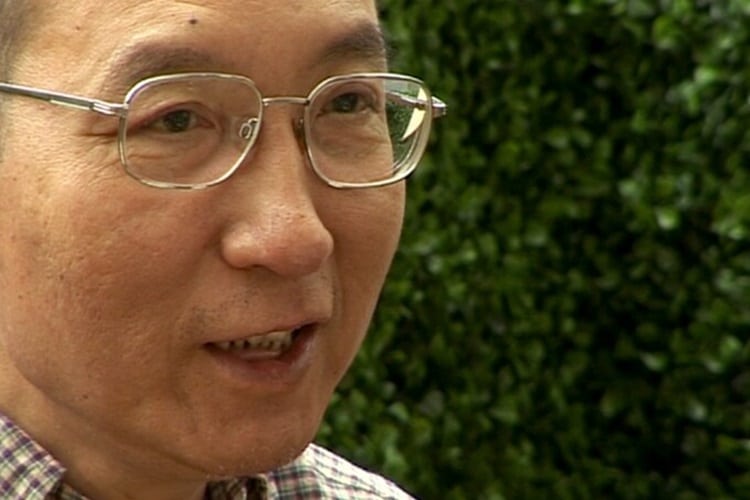Celebrating life and legacy of Liu Xiaobo

Liu Xiaobo (28 December 1955 – 13 July 2017) was a Chinese literary critic, human rights activist, and philosopher.
Early Life And Education
Liu Xiaobo, born on December 28, 1955, in Changchun, Jilin, China, was a renowned literary critic, human rights activist, and Nobel Peace Prize laureate. He hailed from an intellectual family and was deeply influenced by the cultural movements of his time. During the ‘Down to the Countryside Movement,’ Liu was sent to Inner Mongolia by his father, where he completed his middle school education. He later worked on a farm in Jilin province before pursuing higher education. Liu graduated from Jilin University with a Bachelor’s degree and continued his academic journey at Beijing Normal University, where he earned a Master’s and a Ph.D. His early life was marked by a blend of intellectual rigor and hands-on experience in the countryside, shaping his perspectives and future endeavors in literature and activism.
Career And Achievements
Liu Xiaobo journey as a critic began with his graduation from Jilin University in 1982 and continued at Beijing Normal University, where he earned a Ph.D. in 1988. Liu’s rise to prominence was marked by his critical examination of modern Chinese literature in 1986, which established him as a leading intellectual voice. His international stature grew with a lecture tour of Norway and the United States in 1988-89, coinciding with the burgeoning pro-democracy movement in Beijing. Liu’s role as an adviser to the student protesters during the Tiananmen Square incident in 1989 was a pivotal moment in his life, leading to his arrest and a 21-month imprisonment following the military crackdown.
Notable Events And Milestones
Liu Xiaobo rise to prominence was catalyzed by his incisive literary critiques, particularly in 1986, which established him as a leading intellectual voice in China. The Tiananmen Square incident of 1989 was a pivotal moment in Liu’s life. As an adviser to the student protesters, he played a crucial role in the pro-democracy movement. His involvement led to his arrest and a 21-month imprisonment following the military crackdown. Despite the personal cost, Liu remained unwavering in his commitment to advocating for democratic reforms and the end of one-party rule in China, which resulted in multiple arrests and periods of incarceration throughout his life.
In 2008, Liu’s dedication to political reform was epitomized by his co-authorship of “Charter 08,” a manifesto demanding political freedoms and human rights in China. This act of defiance led to his arrest and an 11-year sentence for subversion, highlighting the oppressive measures taken against voices of dissent. Liu’s courage and persistence were recognized globally when he was awarded the Nobel Peace Prize in 2010, becoming the first Chinese citizen to receive this honor while imprisoned. Liu Xiaobo’s legacy is multifaceted. He is remembered as a symbol of peaceful resistance and a beacon of hope for activists worldwide. His intellectual contributions to literature and political thought continue to inspire discussions and debates on freedom and democracy. Liu’s life story is a testament to the power of the human spirit to challenge authoritarianism and advocate for fundamental human rights, even in the face of overwhelming adversity. Liu’s impact extends beyond his literary and political achievements. He has become a symbol of the resilience and courage needed to challenge oppressive regimes. His efforts have inspired a generation of activists and human rights defenders, serving as a reminder of the sacrifices required to attain justice and freedom. Liu Xiaobo’s name is synonymous with the ongoing struggle for a more open and democratic China, and his influence will undoubtedly persist as long as the ideals he championed remain relevant.
Awards And Honors
- Nobel Peace Prize (2010): Awarded for his long and non-violent struggle for fundamental human rights in China.
- Honored by Human Rights Watch with the Alison Des Forges Award for Extraordinary Activism (2010): Recognized for his fearless commitment to freedom of expression and assembly in China.
Additional Resources
Books:
- “I Have No Enemies: The Life and Legacy of Liu Xiaobo” by Perry Link and Wu Dazhi, offering a comprehensive biography of Liu Xiaobo’s life and work.
- “The Journey of Liu Xiaobo: From Dark Horse to Nobel Laureate” edited by Joanne Leedom-Ackerman, which includes essays and reflections on Liu’s activism and impact.
Documentaries:
- A 2008 interview with Liu Xiaobo discussing life under China’s authoritarian regime, available on YouTube.
- “No Enemies – No Hatred” – a lecture by Professor Perry Link on the thinking of Liu Xiaobo and the prospects for political change in China, recorded at LSE.
- PBS NewsHour’s coverage on how Liu Xiaobo became the face of peaceful political opposition in China.
Museums and Exhibitions:
- While there are no specific museums dedicated solely to Liu Xiaobo, his influence and contributions are recognized in various exhibitions and memorials around the world.
- The Nobel Peace Center in Oslo had an exhibition titled “I have no enemies” which showcased Liu Xiaobo’s struggle for human rights in China.
- Art and social projects continue to memorialize Liu Xiaobo’s legacy, reflecting on his role as an inspiring figure for pro-democracy activists.
For those interested in learning more about Liu Xiaobo, these resources provide a variety of perspectives on his life, his activism, and his enduring impact on the fight for democracy and human rights.
Observer Voice is the one stop site for National, International news, Sports, Editor’s Choice, Art/culture contents, Quotes and much more. We also cover historical contents. Historical contents includes World History, Indian History, and what happened today. The website also covers Entertainment across the India and World.
Follow Us on Twitter, Instagram, Facebook, & LinkedIn

